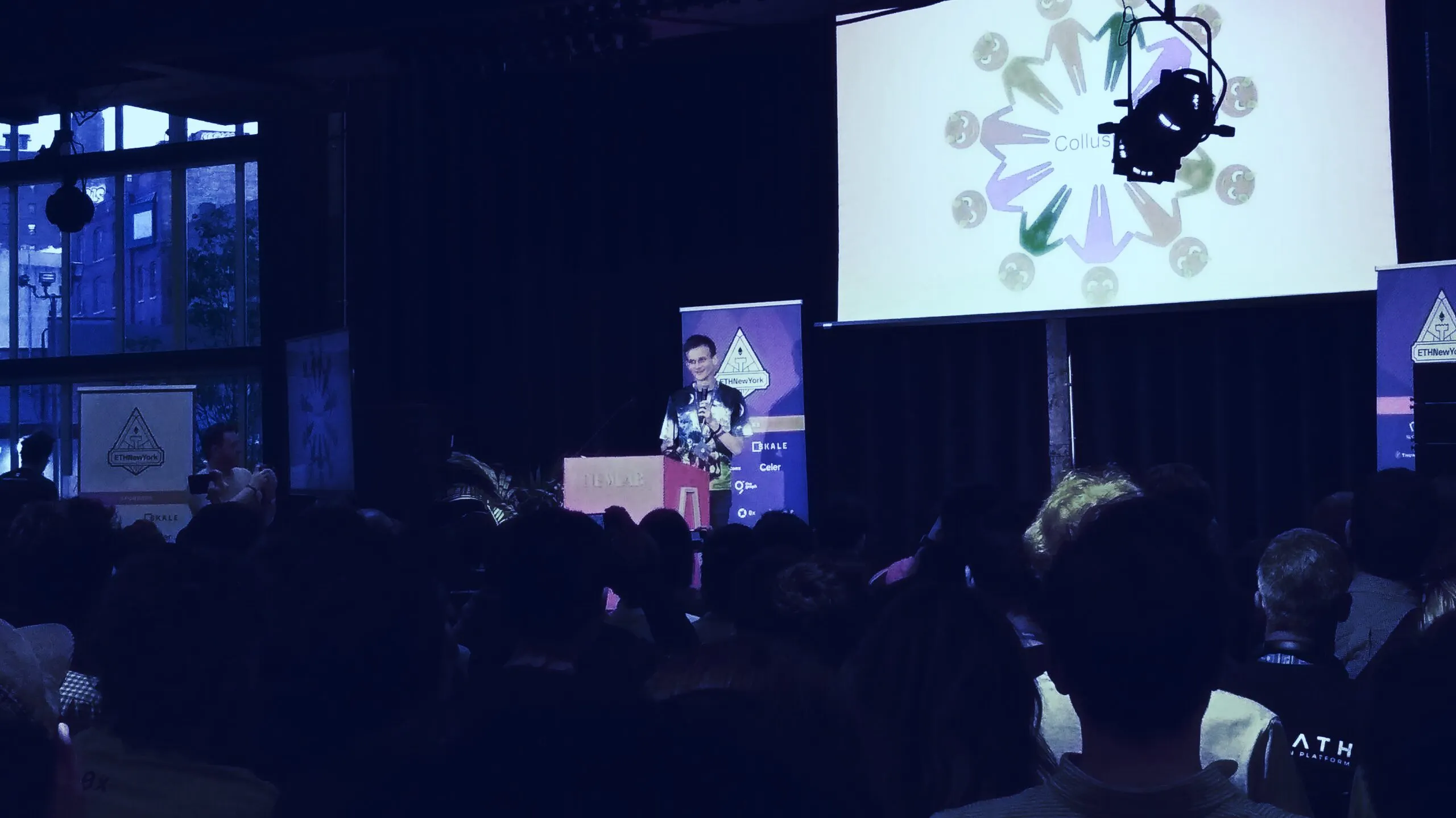It’s actually kind of wonderful that one of the smartest people in the entire world—and certainly in crypto—has been thinking a lot lately about how to solve the problems that beset the downtrodden content creation business.
And that probably makes a lot of sense: Vitaly Dmitriyevich Buterin, better known to the faithful as Vitalik, is the co-founder of both Ethereum and Bitcoin Magazine. Tonight, he gave a keynote address at Eth 2.0, in New York, where he outlined his preliminary thinking on how to use crypto to reward the creation of “good” content.
Building out the infrastructure for making collusion-resistant mechanisms possible, including robust decentralized identity systems, is a difficult challenge, but if we want to unlock the potential of such mechanisms, it seems unavoidable that we have to do our best to try.
“A lot of people say, ‘I’m going to create a decentralized platform for content creation,” Buterin, 25, said at ETH New York. He defined content, in this case, as “articles, code, documentation” and said that the challenge at hand was creating a system that would generate “revenue and come up with a mechanism to distribute it to people who create good content… What kind of mechanism are you going to use to figure out how to reward each person, and how much?”
The wunderkind, who appeared to be wearing one of his signature rainbow unicorn T-shirts, then launched into a spirited discussion of collusion, bribery and other evils that tend to emerge in most blockchain-governance systems. (Like a rock star performing songs from his most recent album, Buterin’s speech hewed very closely to a paper he published on April 3.)
“It seems relatively not that difficult to create mechanisms for blockchain consensus,” Buterin said, but “incentivizing public good seems to be an order of magnitude harder. Cooperative game theory is hard.” That’s because, he said, people breakup into smaller groups with different agendas—”discreet engines, each thinking about their own incentives.”
At the same time, tokenized systems that reward people for voting are potentially easy to co-opt by wealthy members of the community who can buy votes, or bribe people, to vote their way. And “identity systems” are easy enough to exploit using bots and fake accounts.
But good news! Buterin has made some progress since publishing his paper. He’s working on a few possible solutions that harken back to his earliest days working on prediction markets, such as Augur.
Vitalik’s possible solution #1: use prediction markets to put money on the line during voting. So, if they make a bad decision (based on a bribe), they might lose their stake.
“Prediction markets are collusion resistant,” he said. “Take a voting mechanism and integrate with a prediction market. You can vote for, or against a decision. If you vote, it comes with an offer to buy more coins at the price of the DAI token if the coin wins. If the token wins and the price falls, you’re responsible for bailing everyone else out.”
“The idea here ... the reason this is not vulnerable to bribe attacks is, if you try to bribe something that is bad for the DAO, they’re not responsible just for the decisions but they’re responsible for a big drop in the price of the DAO token, and they would have to cover it.“
Vitalik’s possible solution #2 : Add what he calls “collusion resistance.” He said: “We can try to prevent bribing for coming up with infrastructure that allows mechanisms to run. Even if you wanted to prove how you participated, you can’t. This is even harder than zk-SNARKs. The core idea here is there is some operator (centralized/decentralized) trusted for the collusion resistance property, but not for any other property. The idea is that users broadcast their actions to the blockchain, encrypted with the operators public key and signed with their own key.”
OK, everyone got that? Quiz in the morning!

